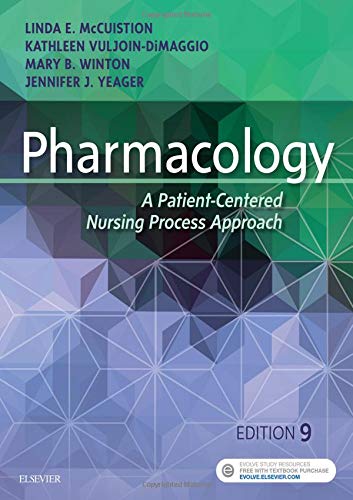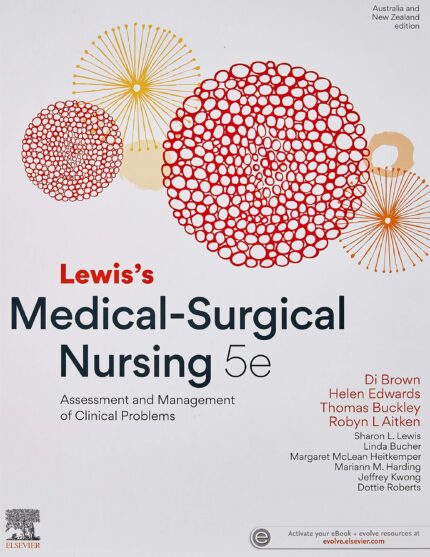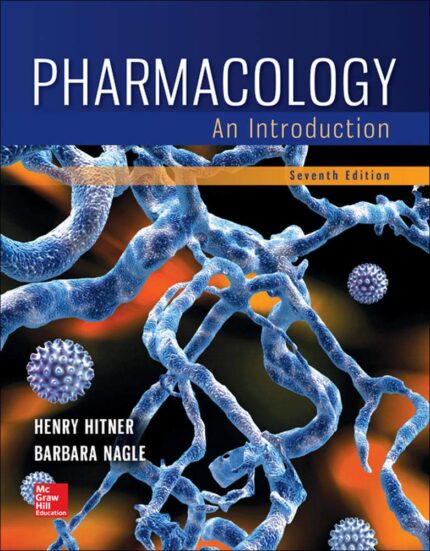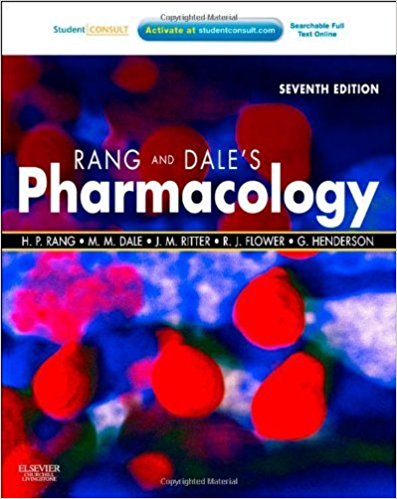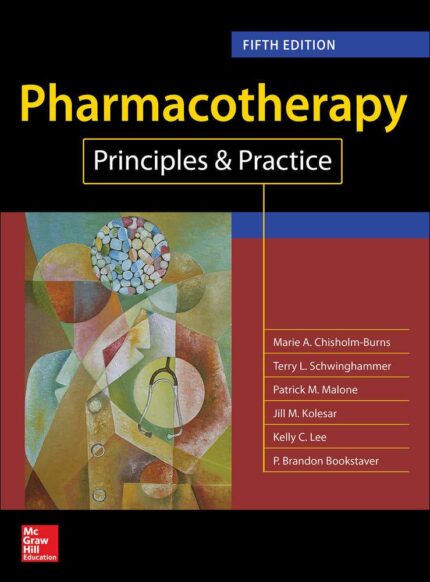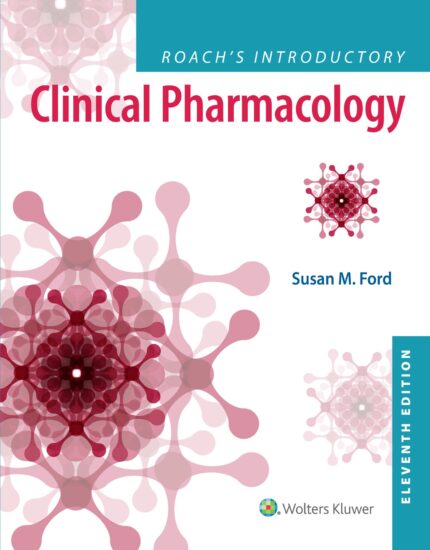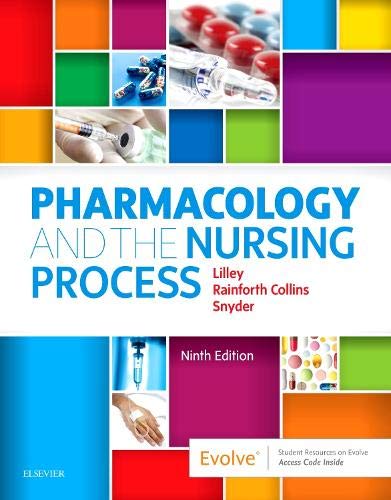McCuistion: Pharmacology: A Patient-Centered Nursing Process Approach, 9th Edition
Chapter 04: Complementary and Alternative Therapies
MULTIPLE CHOICE
- A family member expresses concern that a patient is taking several herbal remedies and worries that they may be unsafe. The nurse will respond by saying that herbs
| a. | are classified as medications by the Dietary Supplement Health and Education Act of 1994. |
| b. | are regulated by the government and are determined to be safe. |
| c. | aren’t usually effective but are generally harmless. |
| d. | should be discussed with the patient’s provider in conjunction with other medications. |
ANS: D
Herbs are sometimes useful but can also be useless or dangerous. There are two types of monographs under development to compile information about these substances, but there are no agencies that regulate safety and efficacy. Patients should always tell providers if they are taking any herbal remedies since there are known drug–herbal interactions and side effects.
DIF: Cognitive Level: Applying (Application) REF: p. 41
TOP: Nursing Process: Nursing Intervention: Patient Teaching
MSC: NCLEX: Physiological Integrity: Pharmacological and Parenteral Therapies
- A pregnant woman tells the nurse that she is taking ginger to reduce morning sickness. What will the nurse tell this patient?
| a. | “Ginger can cause fetal birth defects.” |
| b. | “Ginger is not safe during pregnancy.” |
| c. | “Ginger can cause abortion in low doses.” |
| d. | “Ginger may be taken in low doses for up to 4 days.” |
ANS: D
Ginger may be taken during pregnancy for morning sickness, but only on a short-term, low-dose basis. There is no indication that it causes fetal birth defects. Ginger is an abortifacient in large amounts.
DIF: Cognitive Level: Applying (Application) REF: p. 39
TOP: Nursing Process: Nursing Intervention: Patient Teaching
MSC: NCLEX: Physiological Integrity: Pharmacological and Parenteral Therapies
- A patient asks the nurse about a herbal supplement and reports that it has a United States Pharmacopeia (USP) seal of approval. The nurse explains that this indicates
| a. | identity, potency, purity, and labeling accuracy. |
| b. | premarket testing for safety and efficacy. |
| c. | structure and function claims may be made. |
| d. | the supplement’s ability to prevent and treat disease. |
ANS: A
The USP “seal of approval” is a fee-based test and reports on identity, potency, purity, and labeling accuracy. It does not indicate premarket research on safety and accuracy, does not allow manufacturers to make claims about the function of the products, and does not indicate the substance’s ability to prevent and treat disease.
DIF: Cognitive Level: Applying (Application) REF: p. 38
TOP: Nursing Process: Nursing Intervention: Patient Teaching
MSC: NCLEX: Physiological Integrity: Pharmacological and Parenteral Therapies
- A woman reports using ginseng to treat menopausal symptoms. Which response by the nurse is correct?
| a. | “Ginseng will inhibit your immune system.” |
| b. | “Please tell me if you are taking diabetic medications.” |
| c. | “Side effects of ginseng are common.” |
| d. | “You may experience a decrease in blood pressure while taking ginseng.” |
ANS: B
Diabetic patients taking ginseng should consult with their provider if used in conjunction with other herbs or drugs, because hypoglycemia may result. It may boost the immune system. Side effects are rare except with long-term use or in large doses. Ginseng can increase blood pressure.
DIF: Cognitive Level: Applying (Application) REF: p. 40
TOP: Nursing Process: Assessment/Nursing Intervention
MSC: NCLEX: Physiological Integrity: Pharmacological and Parenteral Therapies
- A woman who is experiencing symptoms of heart failure asks the nurse about using hawthorn. Which response by the nurse is correct?
| a. | “Hawthorn may be used long term in conjunction with nitrates.” |
| b. | “Hawthorn may contribute to hypertension.” |
| c. | “Hawthorn may interact with antihypertensive drugs.” |
| d. | “Hawthorn treats heart failure by lowering potassium levels.” |
ANS: C
Hawthorn may increase the action of antihypertensive medications. Its efficacy is not conclusive and it may interact with nitrates. It may decrease blood pressure. There is no evidence that hawthorn lowers potassium levels.
DIF: Cognitive Level: Applying (Application) REF: p. 40
TOP: Nursing Process: Nursing Intervention: Patient Teaching
MSC: NCLEX: Physiological Integrity: Reduction of Risk Potential
- A patient who has HIV asks the nurse about taking Echinacea to improve immune function. What will the nurse tell this patient?
| a. | “The root extract is useful for treating upper respiratory and urinary tract infections.” |
| b. | “Research regarding the benefits of Echinacea is inconclusive.” |
| c. | “Use it as needed when antibiotics fail to treat your infections.” |
| d. | “You may use it safely up to 8 weeks at a time as a preventive medication.” |
ANS: B
Research regarding the benefits of Echinacea as treatment for cold and flu symptoms is inconclusive. The use of Echinacea to stimulate the immune system of patients with HIV is being investigated, but its use is currently not recommended.
DIF: Cognitive Level: Applying (Application) REF: p. 39
TOP: Nursing Process: Nursing Intervention: Patient Teaching
MSC: NCLEX: Physiological Integrity: Pharmacological and Parenteral Therapies
- The nurse is counseling a female patient who reports taking ginger to treat postoperative nausea. Which statement by the patient indicates understanding of the teaching?
| a. | “I should experience immediate effects with this herb.” |
| b. | “The benefits of taking ginger for postoperative nausea have not been proven.” |
| c. | “I should take ginger with nonsteroidal antiinflammatory drugs (NSAIDs) to enhance its effects.” |
| d. | “If I develop gastrointestinal (GI) upset, I should stop taking ginger immediately.” |
ANS: B
The benefits of taking ginger for postoperative nausea have not been proven, as they have been used short-term for the treatment of nausea associated with pregnancy. Patients may not experience immediate effects. Patients should not take ginger with NSAIDs without consulting the provider. GI upset (gas, bloating, heartburn) are common side effects of the herb.
DIF: Cognitive Level: Applying (Application) REF: p. 39
TOP: Nursing Process: Nursing Intervention: Patient Teaching
MSC: NCLEX: Physiological Integrity: Pharmacological and Parenteral Therapies
- The nurse is providing preoperative education to a patient who will have surgery in several weeks. The patient denies taking anticoagulant medications but reports using herbal supplements. Which herb would cause the nurse to be concerned?
| a. | Echinacea |
| b. | Ginkgo biloba |
| c. | Kava |
| d. | Sage |
ANS: B
Ginkgo can prolong bleeding time and therefore should be discontinued 2 weeks prior to surgery.
DIF: Cognitive Level: Applying (Application) REF: p. 40
TOP: Nursing Process: Nursing Intervention: Patient Teaching
MSC: NCLEX: Physiological Integrity: Pharmacological and Parenteral Therapies
- The nurse provides counseling to a patient who reports taking licorice root to treat a stomach ulcer. Which statement by the patient indicates understanding of the teaching?
| a. | “I may take licorice root with prednisone.” |
| b. | “I may develop hypotension while taking licorice root.” |
| c. | “I should avoid licorice root when pregnant.” |
| d. | “I should try licorice instead of coming back to see the provider.” |
ANS: C
In large amounts, licorice root has been associated with preterm labor and should be avoided in women who are pregnant. Licorice root when taken with corticosteroids can lead to life-threatening hypokalemia. In large amounts, it can elevate blood pressure. The benefits of licorice in the treatment of any condition have not been proven, and the client should see the provider rather than turn to the herbal medication.
DIF: Cognitive Level: Applying (Application) REF: p. 40
TOP: Nursing Process: Nursing Intervention: Patient Teaching
MSC: NCLEX: Physiological Integrity: Pharmacological and Parenteral Therapies
- The spouse of a patient who is an alcoholic asks the nurse about dietary supplements that may help prevent liver disease. Which herb will the nurse suggest the patient discuss with a provider who has prescriptive authority?
| a. | Ginkgo biloba |
| b. | Kava |
| c. | Milk thistle |
| d. | Sage |
ANS: C
Milk thistle can prevent damage to liver cells and stimulates regeneration of liver cells.
DIF: Cognitive Level: Understanding (Comprehension) REF: p. 40
TOP: Nursing Process: Nursing Intervention
MSC: NCLEX: Physiological Integrity: Pharmacological and Parenteral Therapies
- A patient reports taking St. John’s wort to treat symptoms of depression and asks the nurse how to use this product safely and effectively. Which response by the nurse is correct?
| a. | “Apply sunscreen while taking St. John’s wort.” |
| b. | “It is safe to take St. John’s wort with prescription antidepressants.” |
| c. | “St. John’s wort does not affect nutrition.” |
| d. | “You should take St. John’s wort as needed when symptoms occur.” |
ANS: A
St. John’s wort can cause photosensitivity, so patients should be counseled to use sunscreen. It should not be taken with prescription antidepressants because it increases the risk of suicidal ideation. It interferes with the absorption of iron and other minerals. Effects do not occur for 4 to 8 weeks, so it cannot be taken as needed.
DIF: Cognitive Level: Applying (Application) REF: p. 40
TOP: Nursing Process: Nursing Intervention: Patient Teaching
MSC: NCLEX: Physiological Integrity: Pharmacological and Parenteral Therapies
- A patient is taking valerian, or “herbal valium,” to induce sleep. What will the nurse teach this patient about this herb?
| a. | Habituation and addiction are likely. |
| b. | Hangover effects are common with usual doses. |
| c. | Liver function tests must be monitored with long-term use. |
| d. | Valerian has a high risk for overdose. |
ANS: C
Liver function tests must be monitored with long-term use, and valerian should be discontinued if these are elevated. Habituation and addiction are rare. Hangover effects occur with high doses. There is no increased risk for overdose.

